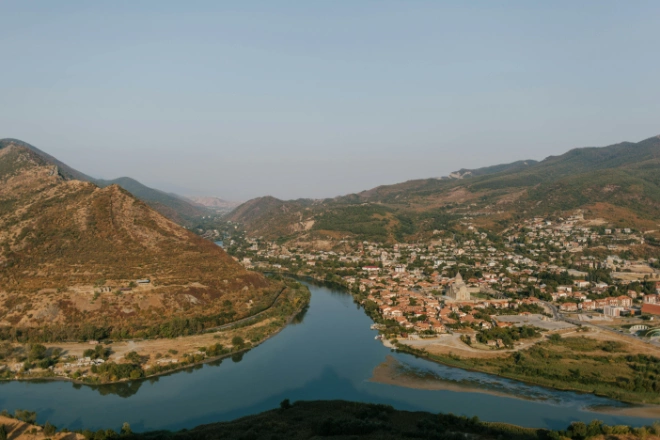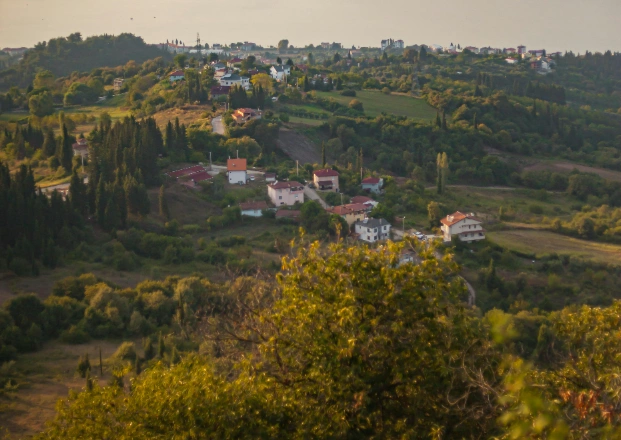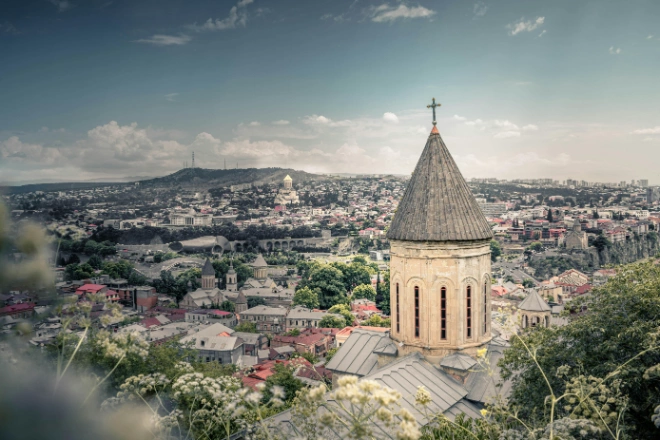From Fortresses to the Future
The story of Georgia’s capitals is not just a tale of geography, but a mirror of the nation’s resilience, faith, and cultural growth. Across centuries, different cities have held the honor of being the political, religious, and cultural centers of the country, each leaving behind a legacy that shaped the nation we know today.
Mtskheta – The Spiritual Birthplace
Long before Tbilisi rose to power, Mtskheta was the beating heart of Georgia. Serving as the capital of the early Georgian Kingdom of Iberia from the 3rd century BC, Mtskheta was more than a political hub — it was the cradle of Christianity in Georgia. It was here, in the 4th century, that King Mirian III declared Christianity the state religion, making Georgia one of the world’s first Christian nations. Even today, UNESCO-protected sites like Svetitskhoveli Cathedral and Jvari Monastery reflect Mtskheta’s sacred role in Georgian identity.

Kutaisi – A City of Kings and Legends
After Mtskheta, power shifted westward to Kutaisi, which became the capital of the Kingdom of Colchis and later the Kingdom of Imereti. Kutaisi is deeply rooted in ancient legend, famously linked with the myth of Jason and the Argonauts’ quest for the Golden Fleece. For centuries, Kutaisi symbolized royal power and Georgian unity, standing as a fortress city during the Middle Ages.

Tbilisi – The Warm Heart of the Nation
The capital finally moved to Tbilisi in the 5th century under King Vakhtang Gorgasali, who, according to legend, discovered the city’s hot sulfur springs while hunting. Captivated by its location on key trade routes and its natural defenses, he laid the foundations for Tbilisi to become the center of Georgian life. Over time, despite invasions and reconstructions, Tbilisi grew into a cultural melting pot of East and West — a role it proudly maintains today.
With its strategic location along the Silk Road, Tbilisi became more than a political hub — it became a symbol of resilience, innovation, and hospitality. Its rich architecture, diverse population, and thriving arts scene continue to showcase why it remains the beating heart of Georgia.

The Capital That Welcomes the World
Today, Tbilisi isn’t just Georgia’s political and cultural capital, but also a city that opens its doors to the world. In 2025, it will host the Junior Eurovision Song Contest, bringing together young voices from across Europe. This global event reflects Tbilisi’s timeless spirit — a city where history and modern creativity blend seamlessly, reminding visitors that Georgia is both rooted in tradition and boldly stepping into the future.
Votes: https://crowch.com/vote/2919/statistic/ https://crowch.com/vote/2918/statistic /https://crowch.com/vote/2907/statistic/
Close